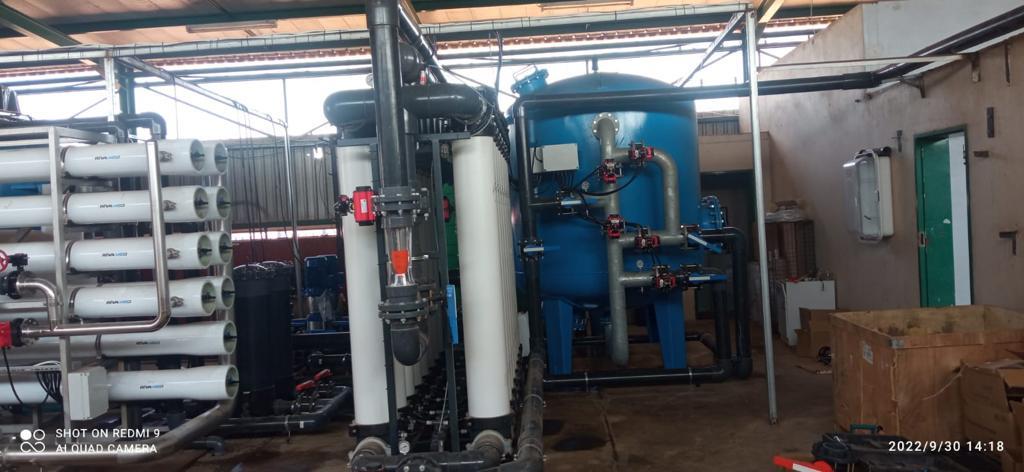Reverse Osmosis (RO) Technology: Achieving the Purest Water
In various settings, including industrial facilities and households, the quality and purity of water are fundamental requirements. Reverse osmosis technology is one of the most precise membrane filtration methods used to achieve the purest form of water.
The Fundamental Principle of Reverse Osmosis
Reverse osmosis is a process that works in the opposite direction of osmosis. It utilizes a semi-permeable membrane to facilitate the passage of pure water from a lower concentration solution to a higher concentration one. However, the reverse osmosis process only allows pure water to pass through, leaving behind dissolved salts and particles in the solution. This process requires applying pressure higher than the osmotic pressure and using a semi-permeable membrane.

Advantages of Reverse Osmosis
Reverse osmosis offers significant advantages in obtaining pure water:
- High Purity: Reverse osmosis technology effectively removes salts, contaminants, and particles from water, resulting in extremely pure water.
- Wide Range of Applications: Reverse osmosis water purification systems are commonly used in both industrial processes and domestic settings.
- Environmental Sustainability: Reverse osmosis supports environmental sustainability by reducing chemical consumption for water treatment.
Retaining Salt Removal with Reverse Osmosis
One of the most remarkable features of reverse osmosis is its high salt removal capability. It achieves salt removal rates of up to more than 99%, effectively eliminating salts from the water body. This feature provides a wide range of applications, from industrial processes to drinking water production.
Challenges and Solutions in Reverse Osmosis
The most common issue in reverse osmosis systems is membrane fouling. Crystallization of salts on the membrane surface leads to clogging of filtration channels. To prevent this, membranes require regular maintenance and cleaning. Additionally, monitoring the water’s pH values is crucial as high pH values can increase membrane fouling.
Applications
Reverse osmosis has a broad range of applications:
- Hemodialysis Water Systems: Used in treatments for kidney patients where pure water is critical.
- Drinking Water: Commonly employed to enhance the quality of drinking water.
- Industrial Applications: Preferred for many industrial processes ranging from boiler feedwater preparation to chemical production.
Reverse osmosis technology is an advanced purification method used to achieve the purest form of water. With its advantages and wide range of applications, it caters to diverse needs, from industrial facilities to residential use. At RİVATEC, we provide customized solutions to facilities that seek to elevate water quality and achieve optimal results using the power of reverse osmosis. Leverage the advantages offered by reverse osmosis technology for quality and assurance in water treatment processes.